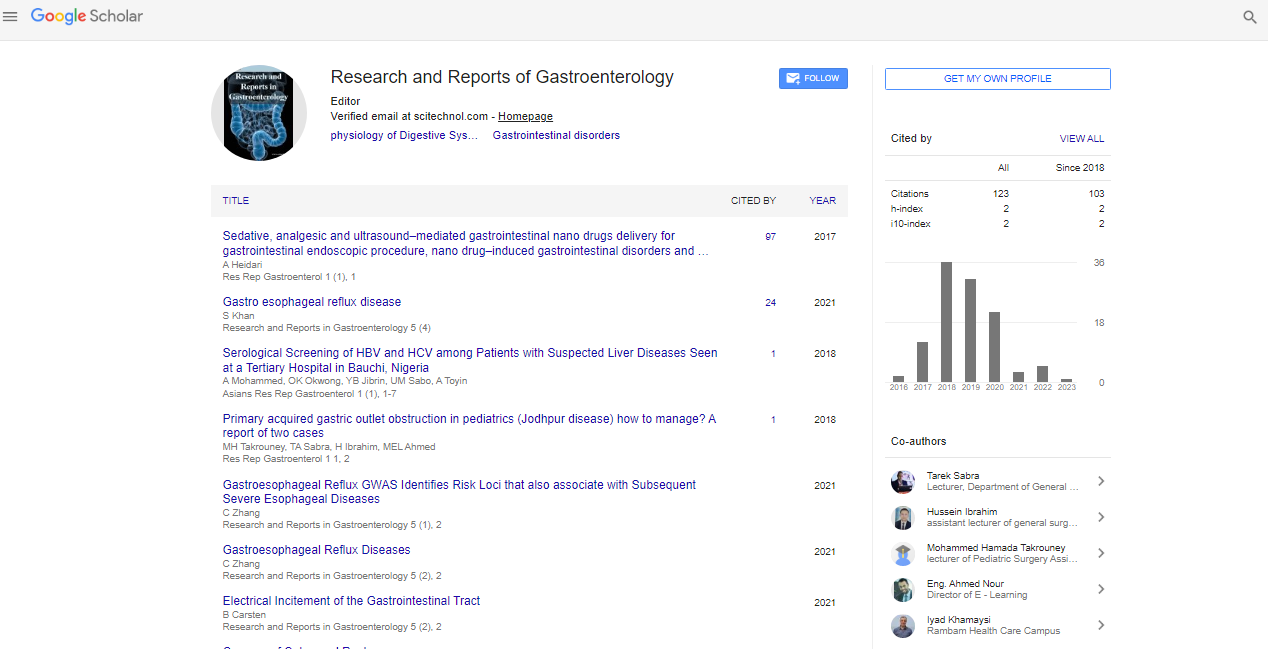Commentary, Res Rep Gastroenterol Vol: 7 Issue: 1
Drug Metabolism and Immunology
Sikms James *
Department of Biochemistry, Sweden Medical College, New Work, United State
*Corresponding Author: Sikms James
Department of Biochemistry, Sweden Medical College, New Work, United State
E-mail: james_s@med.be
Received date: 20 February, 2023, Manuscript No. RRG-23-97821;
Editor assigned date: 22 February, 2023, PreQC No. RRG-23-97821 (PQ);
Reviewed date: 08 March, 2023, QC No. RRG-23-97821;
Revised date: 15 March, 2023, Manuscript No. RRG-23-97821 (R);
Published date: 23 March, 2023, DOI: 10.4172/Rrg.1000132
Citation: James S (2023) Drug Metabolism and Immunology. Res Rep Gastroenterol 7:1.
Description
Drug metabolism and immunology are two critical aspects of pharmacology that are closely related. Drug metabolism refers to the chemical and enzymatic processes that occur within the body to break down drugs and eliminate them from the body. Immunology, on the other hand, refers to the study of the immune system and how it functions to protect the body from foreign substances, including drugs. In this article, we will explore the relationship between drug metabolism and immunology and how it affects drug efficacy and toxicity.
Drug metabolism is an essential process that occurs in the liver and other organs of the body. The liver plays a critical role in drug metabolism as it contains enzymes that break down drugs and other foreign substances. The primary goal of drug metabolism is to convert lipophilic, non-polar drugs into more polar compounds that are easily excreted from the body.
There are two phases of drug metabolism i.e. phase I and phase II. In phase I metabolism, enzymes such as cytochrome P450 (CYP) and Flavin-Containing Monooxygenases (FMO) oxidize drugs to create metabolites. These metabolites are often more polar and reactive than the parent drug and can be further metabolized in phase II. In phase II metabolism, enzymes such as glucuronidation and sulfation add polar molecules to the metabolites created in phase I, making them more water-soluble and easier to eliminate from the body.
Drug metabolism can affect drug efficacy and toxicity in several ways. For example, if a drug is metabolized too quickly, it may not reach therapeutic levels in the body, leading to treatment failure. Conversely, if a drug is metabolized too slowly, it may accumulate in the body and lead to toxic effects. In some cases, drug metabolism can also lead to the formation of toxic metabolites that can cause adverse reactions.
The immune system is responsible for protecting the body from foreign substances, including drugs. The immune system is made up of various cells, including white blood cells (leukocytes), which work together to identify and destroy foreign substances. The immune system also has the ability to remember previous encounters with foreign substances, allowing it to mount a faster and more robust response upon subsequent exposure.
The immune system can also play a role in drug efficacy and toxicity. For example, some drugs may stimulate the immune system, leading to an increased immune response. This can be beneficial in some cases, such as when treating cancer or infectious diseases. However, in other cases, an overactive immune response can lead to adverse reactions, such as drug-induced hypersensitivity or autoimmune disorders.
The relationship between drug metabolism and immunology is complex and can affect drug efficacy and toxicity in several ways. For example, drug metabolism can affect the pharmacokinetics of a drug, which can, in turn, affect its interaction with the immune system. Some drugs may be metabolized into active metabolites that can stimulate the immune system, while others may be metabolized into inactive metabolites that have no effect on the immune system.
Drug metabolism can also affect the formation of drug metabolites that can cause adverse immune reactions. For example, some drugs may be metabolized into reactive metabolites that can bind to proteins and trigger an immune response. In some cases, these immune responses can lead to severe allergic reactions or autoimmune disorders.
Furthermore, the immune system can also affect drug metabolism. The presence of an active immune response can affect the activity of drug-metabolizing enzymes, leading to changes in drug metabolism and pharmacokinetics. For example, some drugs may induce the activity of drug-metabolizing enzymes, while others may inhibit their activity, leading to changes in drug efficacy and toxicity.
 Spanish
Spanish  Chinese
Chinese  Russian
Russian  German
German  French
French  Japanese
Japanese  Portuguese
Portuguese  Hindi
Hindi 